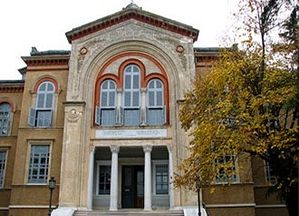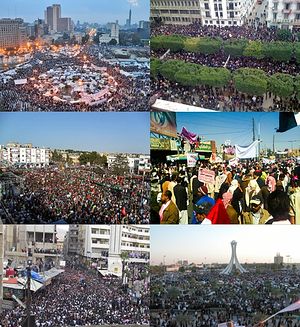SOURCE: First Things
By Mark Movsesian
Elizabeth Prodromou, a former Vice Chair of the U.S. Commission on International Religious Freedom, or USCIRF, has some harsh words for the commission’s annual report, issued last month. Prodromou sharply criticizes USCIRF and the entire U.S. foreign policy team for ignoring human rights violations endured by Orthodox Christians in the Middle East.
For example, Prodromou complains that neither the U.S. administration nor USCIRF (an independent agency) has issued a statement about the kidnapping in Syria last month, most likely by Islamists in the opposition, of two Orthodox bishops. The kidnapping of two bishops sends an ominous message to Syria’s Christians, and Prodromou is outraged that the U.S. did not see fit to introduce a Security Council resolution condemning the kidnapping. Russia, she notes, did introduce such a resolution.
I share Prodromou’s outrage about what is happening to Christians in Syria, most of whom are Orthodox, and her frustration at the West’s lack of attention to the problem. (This lack of attention is nothing new; the last U.S. administration seemed more or less indifferent to the plight of Iraq’s Christians). But I’m not sure that official American statements would help the situation. Perversely, official expressions of concern from the outside often increase the danger for Christians in the Middle East. When Pope Benedict spoke about the obvious mistreatment of Copts a while ago, for example, Egypt withdrew its Vatican ambassador in protest. Things have not improved for the Copts since.
Moreover, it’s not plain how much credibility U.S. government statements have in Syria at the moment. The U.S. has worked itself into a situation in which neither of the major players in the conflict, neither Assad nor the Islamists who dominate the opposition, have an incentive to listen to what the U.S. says. I’m not suggesting the U.S. and the West should ignore the plight of Syria’s Christians and leave them to their fate; not at all. I mean only that official statements, without the wherewithal to back them up, do little, and often backfire.
 Halki seminary
Halki seminary
By the USCIRF’s own report in 2013, Halki [a famous Greek Orthodox seminary] remains shuttered 42 years after its closing and 10-plus years into the Erdogan era; there has been no overhaul of the property rights regime used to economically disenfranchise the country’s Orthodox Christian citizens and strip Orthodox foundations of their lands, so that the USCIRF characterized random returns of property, as in the case of forest lands around Halki returned to the Ecumenical Patriarchate, as “commendable” but “not codified by law.” The 2013 USCIRF report also cited rising fear amongst Armenian Orthodox citizens of Turkey, because of hate crimes committed against members of their community, the most grotesquely emblematic case being that of an 84-year-old Armenian woman who was murdered in her Istanbul home with a cross carved into her chest. The Commission obliquely commented that the “Turkish local police promptly launched investigations into three cases, but it is not known if any arrests have been made connected to any of these incidents.”
It does seem very strange that a country could go from being a “country of particular concern” to one merely “worth watching” in the space of a year, especially a country with Turkey’s spotty religious-freedom record. In fact, four commissioners dissented from USCIRF’s decision, including current Vice Chair Mary Ann Glendon and Commissioner Robert P. George, both of whom are affiliated with First Things. USCIRF shouldn’t have named Turkey as a CPC in the first place, the dissenters wrote, but, having made that decision, USCIRF is now making the opposite mistake. “We believe that Turkey has not shown nearly enough improvement in addressing religious freedom violations over the past year to justify its promotion to the status of a country that is merely being monitored,” they explained. The dissenters would have placed Turkey in an intermediate category–among “Tier 2″ religious freedom violators, in the parlance of USCIRF.


